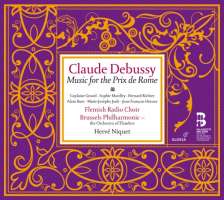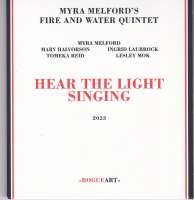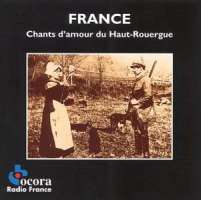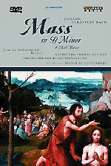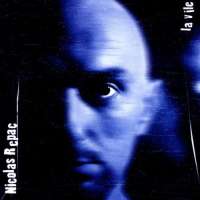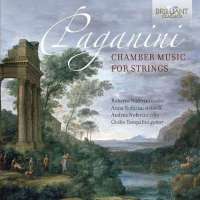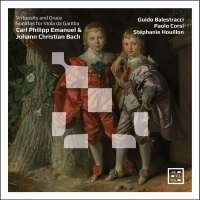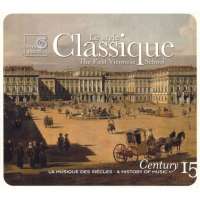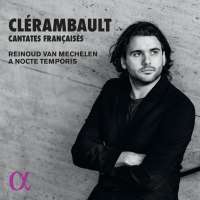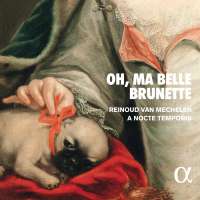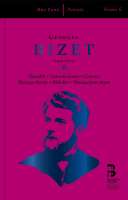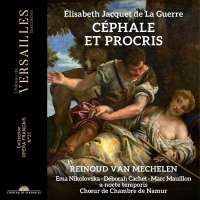
kompozytor
różni kompozytorzy
tytuł
Legros - haute-contre de Gluck
pełny spis kompozytorów
Paganini, Niccolo;
Bach, Johann Christian;
Gluck, Christoph Willibald;
Gretry, André-Ernest-Modeste;
Gossec, François-Joseph
Bach, Johann Christian;
Gluck, Christoph Willibald;
Gretry, André-Ernest-Modeste;
Gossec, François-Joseph
wykonawcy
A Nocte Temporis;
Van Mechelen, Reinoud
Van Mechelen, Reinoud
nr katalogowy
Alpha 992
opis
Tenor Reinoud Van Mechelen concludes his trilogy dedicated to hautes-contre with "Legros, Gluck's haute-contre". Joseph Legros (1739-1793) was a singer at the Paris Opéra, renowned for his extraordinary musical abilities, wide range and brilliant high notes. “His contemporaries appreciated the fact that his vocal delivery was not forced and that his taste was less mannered than that of his predecessors. His pronunciation was perfect and his face pleasing, although he did not cut a graceful figure and his stage acting left something to be desired” writes Benoit Dratwicki, of the Centre de Musique Baroque de Versailles, which is a partner in this series... Legros sparked renewed interest among modern composers for the haute-contre voice. The first to write for him were La Borde, Trial and Berton. Then came Gossec (Alexis et Daphné) and Grétry (Céphale et Procris). In 1774, Gluck's arrival in Paris marked a turning point in Legros's career: he made a name for himself in Orphée et Eurydice, caused a sensation in Iphigénie en Aulide and Iphigénie en Tauride... The title roles in Amadis de Gaule by J. C. Bach and Piccinni's Atys were the last roles in which he shone. After Legros, the haute-contre voice gradually disappeared, giving way to that of the "true tenor", a more powerful voice, but one that had difficulty tackling the high register of the old repertoire...
• Gluck: Accablé de regrets (from Orphée et Eurydice)
• Gluck: Iphigénie en Aulide: Overture
• Gluck: J'ai perdu mon Eurydice (from Orphée et Eurydice)
• Gluck: J'obtiens l'objet que j'aime (from Iphigénie en Aulide)
• Gluck: Quel langage (from Iphigénie en Tauride)
• Gluck: Quel nouveau ciel (from Orphée et Eurydice)
• Gossec: Alexis et Daphné
• Gretry: Céphale et Procris
• Gretry: Déesse des beaux jours (from Céphale et Procris)
• Gretry: Parais, mortel amoureux (from Céphale et Procris)
• Laborde: Ciel! en voyant ce temple redoutable (from Thétis et Pelée)
• Laborde: Que mon destin est déplorable (from Thétis et Pelée)
• Laborde: Thétis et Pelée: Ouverture
• Legros: C'est ici que j'ai vu pour la première fois (from Hylas et Églé)
• Piccinni: Ô funeste amitié! Confiance accablante! (from Atys)
• Trial: Amour, si tu te plais à ma douleur mortelle (fromLa fête de Flore)
Works:
•Berton, P-M: Sylvie
• Gluck: Accablé de regrets (from Orphée et Eurydice)
• Gluck: Iphigénie en Aulide: Overture
• Gluck: J'ai perdu mon Eurydice (from Orphée et Eurydice)
• Gluck: J'obtiens l'objet que j'aime (from Iphigénie en Aulide)
• Gluck: Quel langage (from Iphigénie en Tauride)
• Gluck: Quel nouveau ciel (from Orphée et Eurydice)
• Gossec: Alexis et Daphné
• Gretry: Céphale et Procris
• Gretry: Déesse des beaux jours (from Céphale et Procris)
• Gretry: Parais, mortel amoureux (from Céphale et Procris)
• Laborde: Ciel! en voyant ce temple redoutable (from Thétis et Pelée)
• Laborde: Que mon destin est déplorable (from Thétis et Pelée)
• Laborde: Thétis et Pelée: Ouverture
• Legros: C'est ici que j'ai vu pour la première fois (from Hylas et Églé)
• Piccinni: Ô funeste amitié! Confiance accablante! (from Atys)
• Trial: Amour, si tu te plais à ma douleur mortelle (fromLa fête de Flore)
nośnik
CD
gatunek
Muzyka klasyczna
producent
Alpha
data wydania
02-10-2023
EAN / kod kreskowy
3760014199929

(Produkt nie został jeszcze oceniony)
cena 79,00 zł
lubProdukt dostępny.
Wysyłka w ciągu 3 dni roboczych
Darmowa wysyłka dla zamówień powyżej 300 zł!
Darmowy kurier dla zamówień powyżej 500 zł!
sprawdź koszty wysyłki

